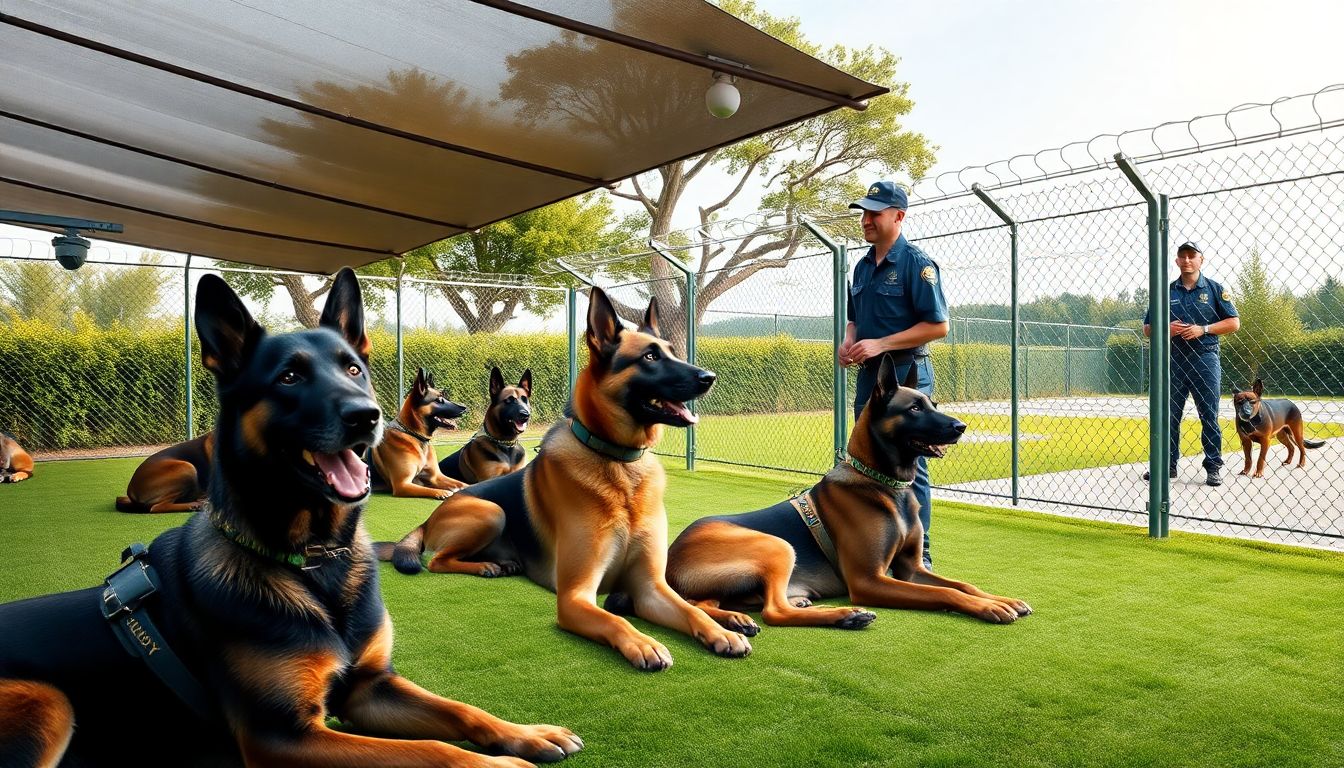Introduction
Protection includes safeguarding property, assets, and human life. Trained security dogs play a vital role in detecting and responding to threats. Therefore, the care centers that provide training and look after their well-being are crucial. A professional security dog care center focuses on the dog’s health, behavior, and skill development. As global security demands increase, expert care centers for security dogs are more important than ever.
Choosing the Right Security Dogs Care Center
Things to Consider While Selecting the Care Center
The right care center makes a significant difference. While location matters, reputation should be the key factor. Look for centers that offer training, medical care, and behavioral evaluations. Trainers should be experienced, and the center should employ licensed veterinarians.
Key Certifications & Standards
Check for certifications from recognized bodies like USDA or ISO. These confirm that the care center meets high standards in animal welfare and safety. Certified facilities also assure compliance with legal guidelines.
Essential Services Rendered in Security Dogs Care Center
Training and Behavior Rehabilitation of Dogs
Training is the foundation of a capable security dog. Centers offer obedience, protection, and agility training. Positive reinforcement and desensitization techniques are commonly used. Some centers share case studies that show the success of their training programs.
Diagnosis and Treatment
Regular health checkups and vaccinations are vital. In emergencies, certified veterinarians provide urgent care and rehabilitation. Prevention is a key focus, ensuring long-term health and performance.
Nourishment and Diet Management
Diet affects energy, alertness, and endurance. Meal plans are customized based on breed, age, and activity level. Supplements may be used to enhance performance and health. Nutrition supports both mental and physical readiness.
Grooming and Hygiene
Proper grooming enhances hygiene and focus. Services include bathing, coat care, and nail trimming. Clean dogs are healthier and perform more reliably in demanding environments.
Training Techniques and Programs
Personalized Learning Programs
Training is tailored to each dog’s skills and roles. Assessments help design individual plans. Progress is regularly reviewed and adjusted accordingly.
Methods and Instruments Used
Modern training uses advanced tools like scent kits and agility courses. Clicker training and operant conditioning are popular techniques. Technology helps monitor and enhance progress efficiently.
Behavioral Assessment and Socialization
Security dogs must be well-behaved around people and other animals. Centers conduct assessments to match dogs with suitable roles. Socialization builds confidence and adaptability.
Animal Welfare and Ethics
Animal Welfare Policies
Humane treatment and regular welfare checks are standard in reputable care centers. Comfortable environments reduce stress and support well-being.
Ethics of Training and Care
Modern methods replace harsh training with positive reinforcement. Transparency in training builds client trust and ensures the dog’s humane treatment.
Mental and Physical Health
Daily exercise and enrichment activities, like puzzle toys and walks, support well-rounded health. Recognizing signs of stress can prevent burnout and keep dogs motivated and happy.
Real-Life Examples & Insights from the Industry
Leading care centers in the U.S. showcase success stories of dogs that enhanced security outcomes through expert care and training. Industry experts agree that properly cared-for dogs perform better in the field and remain loyal partners in protection.
Practical Tips to Any Dog Owner and Security Firm
- Research a center’s reputation, certifications, and range of services.
- Visit the facility in person when possible.
- Assess the cleanliness and professionalism of the staff.
- Ask about training methodologies and how behavioral issues are addressed.
- Reinforce training at home and maintain open communication with trainers.
- Ensure regular health checkups and physical exercise.
Conclusion
Security dog care centers play an essential role in shaping strong, reliable protection dogs. The right center provides expert training, comprehensive healthcare, and compassionate treatment. When done right, quality care leads to exceptional performance, well-being, and a lasting bond between the dog and handler.









